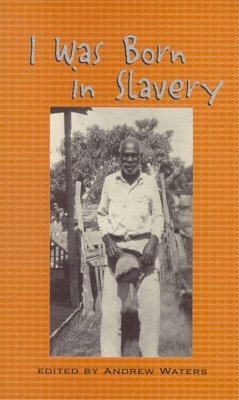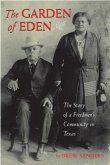When you think of early Texas history, you think of freedom fighters at the Alamo and rugged cowboys riding the plains. You usually don't think too much about slavery in the Lone Star State. Although slavery only existed in Texas from the second decade of the 19th century to the close of the Civil War, the majority of early settlers came to Texas from other Southern states. When they moved westward, they brought their slaves with them. According to the 1850 census, 27.3 percent of the families in Texas owned slaves. By the 1860 census, that number had risen to 30.8 percent. These figures closely match the number of slaveholders in Virginia during that same time. When the Federal Writers' Project sent interviewers across Texas to find former slaves and document what their lives were like during slavery, they filed over 590 slave narratives, the largest collection of any state. The 27 selections in I Was Born in Slavery show that Texas slaves had their own distinctive voices, often colored by their Western culture.
Bitte wählen Sie Ihr Anliegen aus.
Rechnungen
Retourenschein anfordern
Bestellstatus
Storno




